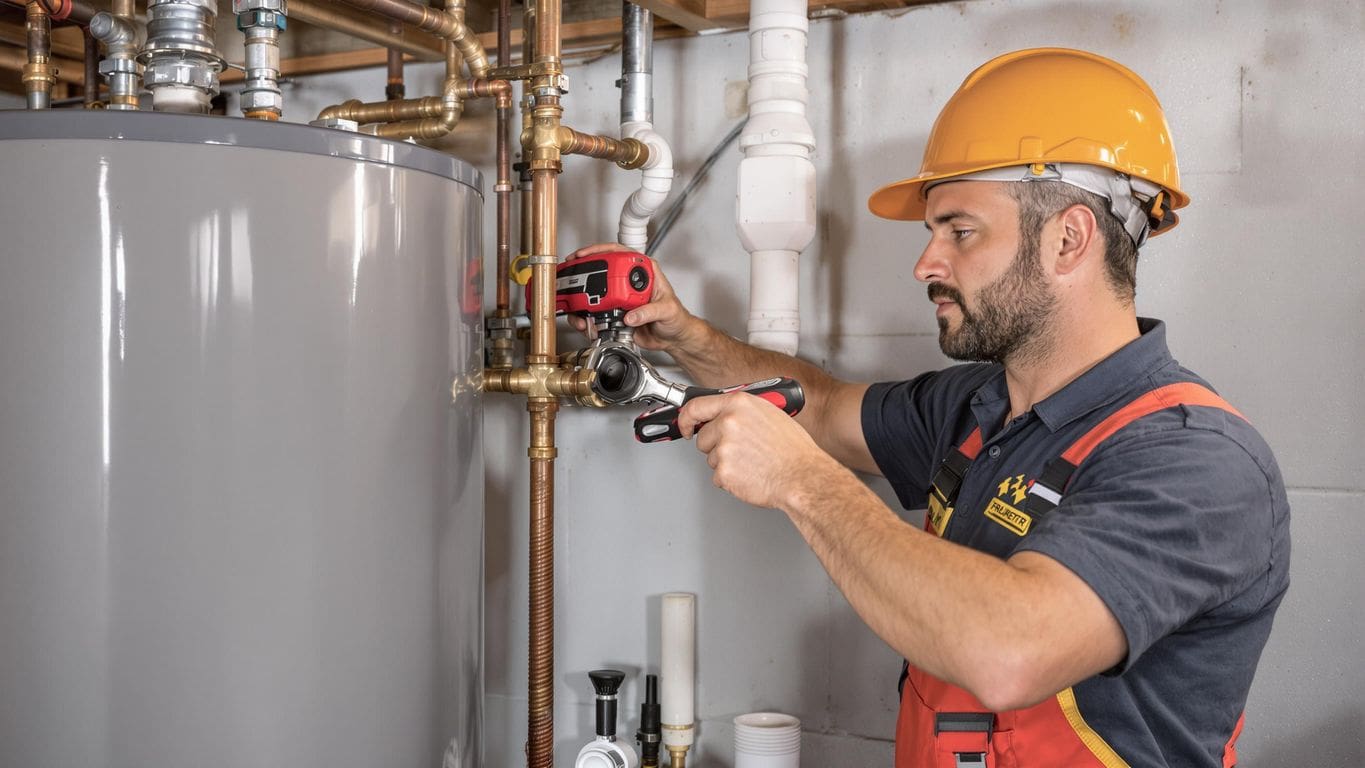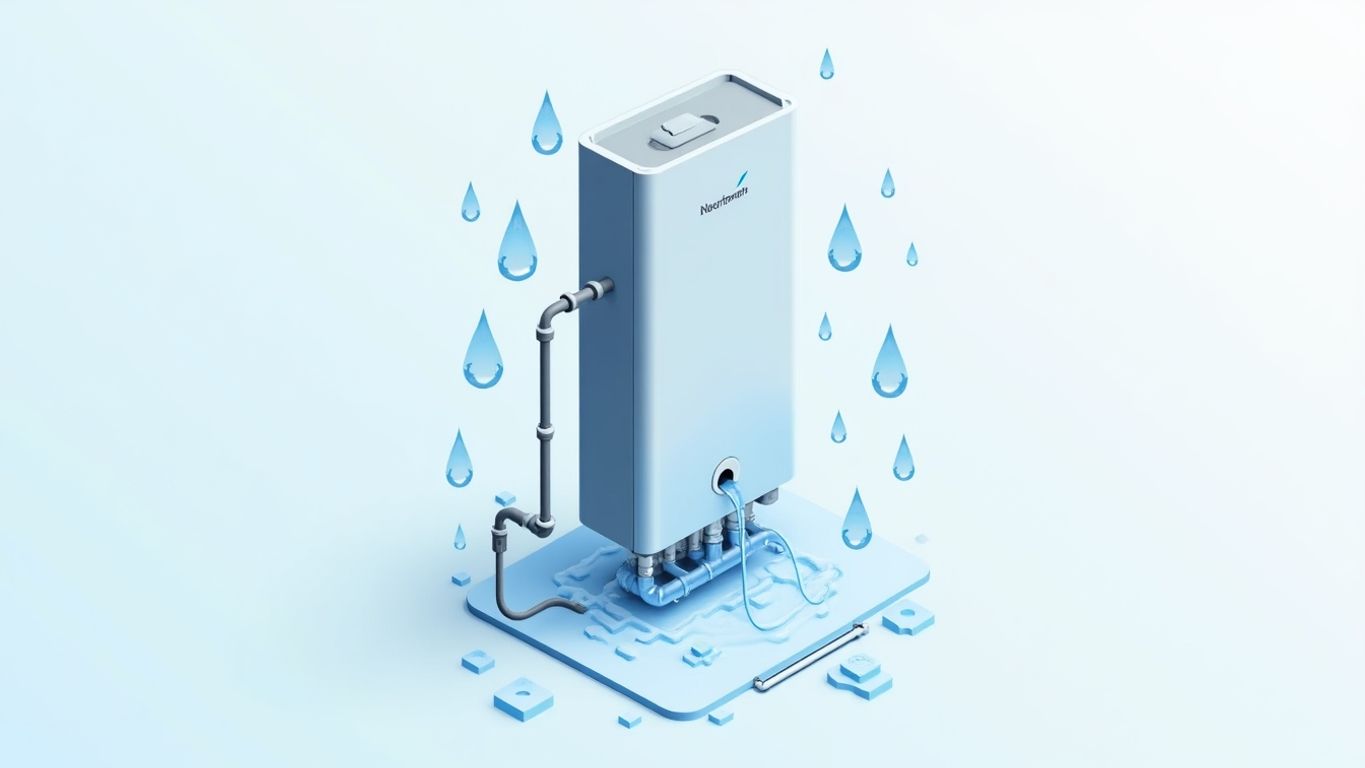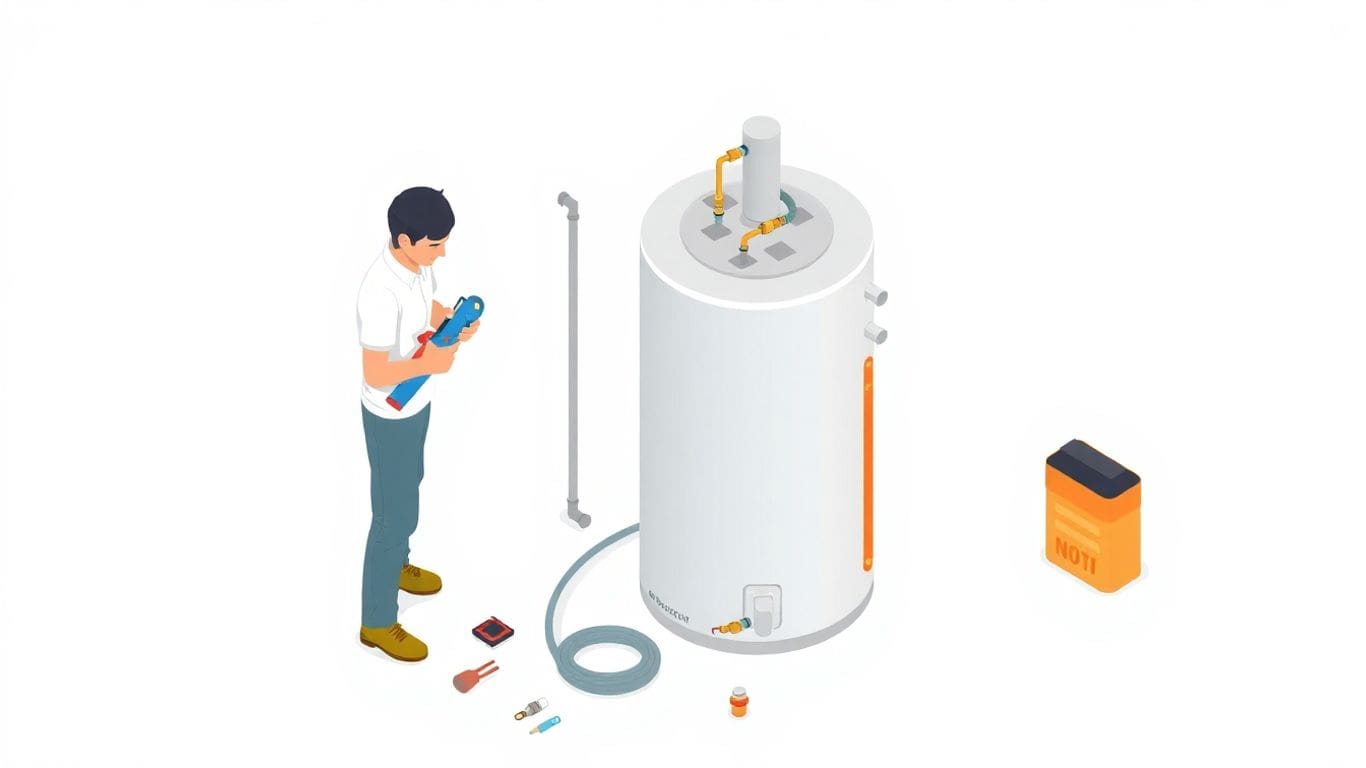
If you’ve invested in a tankless water heater for its promise of endless hot water, discovering it leaking can be quite distressing. Understanding the reasons behind these leaks and how to address them is crucial for every homeowner. In this article, we will explore the common causes of tankless water heater leaking, how to identify signs of leaks, and what preventive measures you can take to keep your system running smoothly. By the end, you’ll be equipped with the knowledge to handle and prevent leaks effectively.
Tankless water heaters are great for providing hot water on demand. However, they can sometimes leak. Here are some common reasons why this happens:
Hard water contains minerals like calcium and magnesium. These minerals can build up inside your water heater. This buildup can cause leaks over time. To prevent this, you can:
If the water pressure in your home is too high, it can stress your tankless water heater. This can lead to leaks. Here’s what you can do:
Sometimes, leaks happen because of poor installation. If the connections are not tight, water can escape. Here are some common mistakes:
Understanding these causes can help you take steps to prevent leaks. Regular maintenance and proper installation are key to keeping your tankless water heater in good shape.
When your tankless water heater is leaking, it’s important to spot the signs early. Here are some common indicators:
You might notice water pooling around your heater. This is a clear sign that something is wrong. Check for leaks at the connections and valves.
If you find that your water temperature is changing unexpectedly, it could mean there’s a problem inside the heater. This might be due to a leak affecting the heating process.
Listen for strange sounds coming from your heater. If you hear gurgling or hissing, it could indicate a leak or internal issue. These noises often mean that water is escaping where it shouldn’t.
Acting quickly can prevent further damage. If you notice any of these signs, it’s best to investigate further or call a professional.
By keeping an eye out for these signs, you can help ensure your tankless water heater stays in good shape and avoid costly repairs later on. Remember, early detection is key!
Hard water is water that has a lot of minerals, like calcium and magnesium. These minerals can build up in your tankless water heater. This buildup can cause leaks.
When hard water builds up, it creates a white scale. This scale can block pipes and damage the heater. Over time, this can lead to leaks. Here are some effects of hard water on your heater:
To keep your tankless water heater safe from hard water, you can take these steps:
Remember, if you see signs of hard water, act quickly. Flushing your heater can prevent bigger problems later on. Ignoring hard water can lead to leaks and costly repairs.
High water pressure can be a big problem for your tankless water heater. These heaters work best with low water pressure. When the pressure is too high, it can cause leaks. Here’s what you need to know:
Look for these signs:
To keep your water pressure in check, consider these options:
Remember, keeping your water pressure low can help prevent leaks and extend the life of your tankless water heater.
When installing a tankless water heater, mistakes can happen. These mistakes can lead to leaks, which can cause damage. Here are some common issues:
Hiring a professional can help avoid these mistakes. They know how to install the heater correctly. This can save you time and money in the long run. A good installation can prevent leaks.
If you suspect your heater was not installed correctly, it’s best to call a plumber. They can check for any issues and fix them.
Remember, a small mistake during installation can lead to big problems later. Always ensure your heater is installed by a qualified technician.
By understanding these common installation mistakes, you can help keep your tankless water heater running smoothly and avoid leaks.
The pressure relief valve is an important part of your tankless water heater. It helps keep the water pressure at a safe level. If this valve is not working right, it can cause leaks. You should check this valve regularly.
Here are some signs that your pressure relief valve might be having problems:
If you notice any of these signs, follow these steps:
Remember, keeping your pressure relief valve in good shape is key to preventing leaks. Regular checks can save you from bigger problems later on.

Internal component failures in tankless water heaters can cause various problems. These issues may include the heat exchanger, pressure sensor, pipe connections, or valves. If you notice leaks or uneven water temperature, it might be due to these failures.
Regular maintenance is key to preventing internal component failures. By keeping an eye on your tankless water heater, you can catch problems early and avoid costly repairs.
Keeping your tankless water heater in good shape is important. Regular maintenance can help you avoid leaks and other problems. Here are some key steps you should follow:
Remember, taking care of your tankless water heater can prevent leaks and extend its lifespan. Regular maintenance is key to keeping your home safe and your heater running well.
By following these steps, you can help ensure that your tankless water heater stays in great condition for years to come. Don’t forget, if you notice any signs of trouble, it’s best to call a professional right away!
If you notice your tankless water heater leaking, it’s important to act quickly. Calling a professional can save you time and prevent further damage. Here are some situations when you should definitely reach out for help:
Remember, while it might be tempting to fix the problem yourself, it’s always best to consult with a professional to ensure the leak is properly diagnosed and repaired.

When your tankless water heater leaks, it can cause serious problems. Ignoring a leak can lead to bigger issues down the road. Here are some impacts to consider:
Taking care of leaks quickly is important. It helps protect your home and keeps your family safe.
When it comes to selecting a tankless water heater, there are a few important factors to keep in mind. Choosing the right one can save you money and provide hot water when you need it.
To help you choose the right size, here’s a simple table:
| Household Size | Recommended Flow Rate (GPM) |
|---|---|
| 1-2 people | 2-3 GPM |
| 3-4 people | 3-5 GPM |
| 5+ people | 5+ GPM |
Remember, taking the time to choose the right tankless water heater can lead to better performance and savings for your home.
Tankless water heaters can leak for several reasons, including hard water, high water pressure, and improper installation.
Yes, hard water contains minerals that can build up and cause damage over time, leading to leaks.
Look for signs like water pooling around the unit, inconsistent water temperature, or unusual sounds coming from the heater.
No, it’s best to turn off the unit and call a professional to avoid any electrical hazards or further damage.
First, turn off the power and water supply to the heater to prevent any more water from leaking.
Regular maintenance, including flushing the system and checking for loose connections, can help prevent leaks.
If you notice a leak or any other issues that you can’t fix yourself, it’s time to call a professional plumber.
A leak can lead to water damage, mold growth, and decreased efficiency, which can increase your energy bills.


